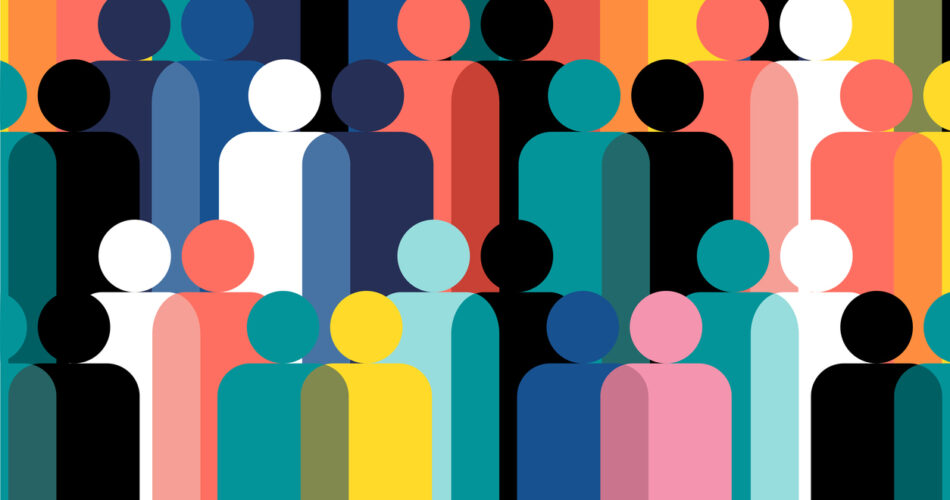Kavya Mukherjee, a 25-year-old, traveled to Delhi in her wheelchair to take an exam for an entry-level teaching position, a test with over 900,000 hopefuls. Despite the sweltering heat and inadequate facilities, Kavya was determined. But her determination turned to dismay when she learned that the UGC-NET exams had been canceled indefinitely. Archit Kumar, a 19-year-old from Patna, was luckier—he at least got to sit for his NEET exam. But his ambitions were crushed when news broke of a paper leak scandal, leaving him in doubt about his future.1 Lessons they must have learnt about Democracy in India could have started to appear shallow to these aspirants.
Ramesh Kumar moved to Delhi from Uttar Pradesh, started driving cab to earn & support his family. He had been doing night shifts near the airport for his family’s sustenance, until one fateful day, he met his end—killed by a roof collapse of the airport.
Whether it’s exam leak, death owing to poor and corruption rigged infrastructure, crime against women, or high taxes— all allude to the apathy of leaders towards the public and how rotten democracy in India is getting. And disturbingly, there’s no remorse from those we elected to lead us. What’s worse is that we, the public, have almost surrendered to this apathy. All we do is wait, wait, and wait.
Read my Lips, I am Lying
Imagine a person, the so-called messiah of the marginalized, adorned with slogans of justice, speaking only about serving the people, wearing spotless white as a symbol of purity. But beneath this veneer lies corruption, hypocrisy, and a hunger for power. The person in your imagination couldn’t be any other but a power hungry politician.
Irony dies a thousand deaths in politics. Nothing illustrates this more than the opening of India’s new Parliament building in May 2023, with PM Modi referring to it as a “temple of democracy.” Yet, as per ADR report, 46 percent of those elected in the 2024 Federal election have criminal records, including charges of rape, murder, and kidnapping. My dear fellow citizens, these are the people we sent to represent us.
Why take only the Largest democracy, take the oldest democracy as well.
George Bush in his 1988 Presidential elections speech, asked public to Read his lips to know to speak No New Taxes, enough for him to as many say win the elections by defeating Michael Dukakis. Well well well, no wonder, America had a fiscal deficit, and Bush “reluctantly” had to bite his tongue and increase taxes. The irony is undeniable: “Read my lips, I was lying.”
Democracy: By the People, For the Leader
Can we say Democracy was born for people and is buried by people themselves?
Winston Churchill once said, “A politician needs the ability to foretell what is going to happen tomorrow, next week, next month, and next year—and to have the ability afterward to explain why it didn’t happen.”
And so we wonder—how did it come to this? How did public servants so easily detach themselves from the people they were meant to serve?
Human civilization has only been around in its current form for about 10,000 to 12,000 years. Early humans formed communities based on shared needs—security, food, and survival. In such groups, leaders naturally emerged, those who could guide and inspire.
For every journey to Canaan, a Moses was required.
But as civilization grew, leadership became less about serving and more about manipulating. Leaders morphed into politicians, trading service for strategy.
Democracy: Flourishing & Faltering through Ages
Divinity to rule became one of most significant and long lasting ways to become Teflon to people criticism. It empowered rulers to not become accountable to people and parliament.
In ancient Mesopotamia, King Hammurabi claimed that God had mandated him to create a set of 282 divine laws, “Code of Hammurabi” giving him legitimacy to rule and legislate. Pharaohs of Egypt positioned themselves as intermediaries between the gods and the people, solidifying their authority to govern people. In modern history, King Louis XIV of France became a staunch proponent to this theory.
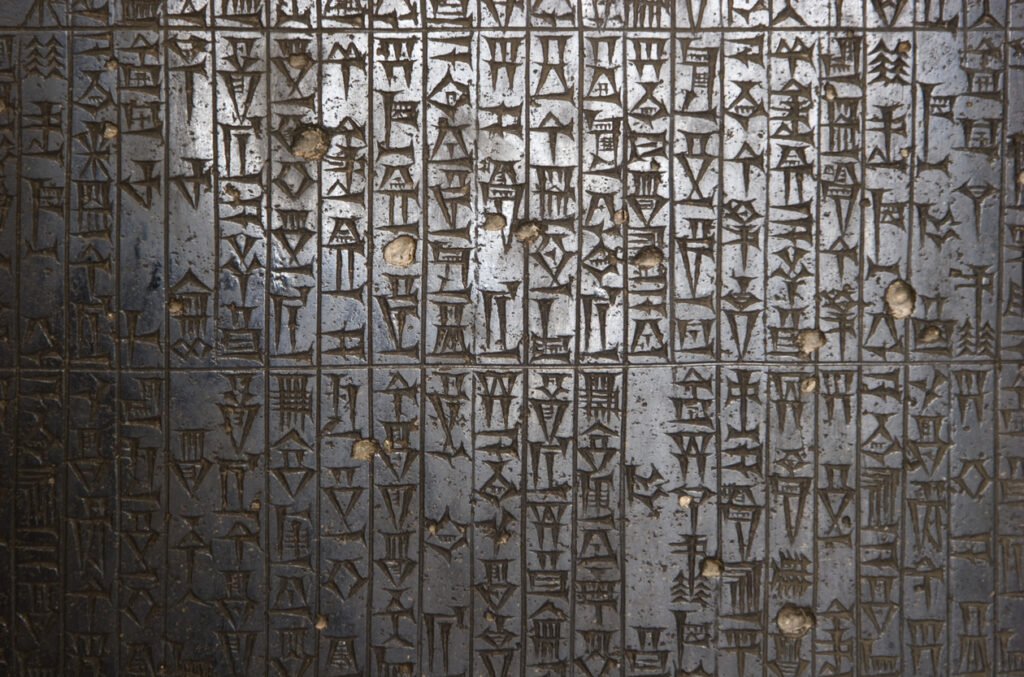
Leadership evolved from the divine right of kings to monarchy, oligarchy, tyranny, and finally paved the way for democracy. Cleisthenes is often referred to as the “Father of Athenian Democracy.” He introduced a system that gave citizens a say in legislation and governance. The word “democracy” comes from the Greek words demos (people) and kratos (power)—a true “power of the people”. This was the leadership model, supported from Cleisthenes to Pericles, where the people held the power to decide their own fate.
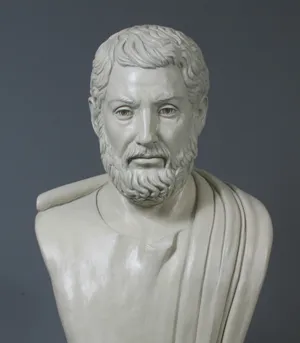
In 1215, England’s Magna Carta further cemented the idea that even kings must be accountable to the law. This was a document released against the King John authoritarianism. This very document even said to have laid foundation of constitution of every single English-speaking country.
In contemporary history, John Locke, English Philosopher propagated the idea of democracy through arguments that individuals possess inherent rights to life, liberty, and property. He asserted that these rights are fundamental and must be protected by the government and that the governments should be formed through the consent of the governed. If a government fails to protect citizens’ rights, people then have the right to revolt and establish a new government. John Locke was the inspiration for the the Constitution of the United States.
Jean-Jacques Rousseau Swiss-born philosopher considered to be the inspirer of French Revolution. Rousseau introduced the concept of popular sovereignty, arguing that true political authority rests with the people. He believed that governments should reflect the general will of the populace. In his work The Social Contract, Rousseau proposed that individuals enter into a collective agreement to form a society, emphasizing that legitimate political authority arises from the consent of the governed.
The Seduction of Power
A democratic leader today once elected and gets any authority can easily be seen influenced by allure of power. Politicians today wield power not as servants but as masters.
Abraham Lincoln summed it up best: “If you want to test a man’s character, give him power.”
A politician’s hunger for power often lies dormant until they taste control. It’s like a parched man finally drinking water—an intense desire surges through, revealing the depths of their thirst. The craving for power was always there, masked behind a facade of self-restraint. But once in power, the pretense fades, and the true drive to dominate and accumulate wealth surfaces. The act of restraint was merely a performance, waiting for the right moment to shed its disguise.
Today, the chosen leaders don’t feel like they are from among us. We felt betrayed and abandoned.
Robert A. Dahl, American political scientist, discussed the growing challenges for democracy and how the failure of governments to meet the demands of its public has resulted in declining turnout, and increased admiration for autocratic leaders in his book, On Democracy.
American philosopher John Dewey in his book Democracy and Education describes Democracy as “mode of associated life” in which citizens cooperate to solve their common problems in a spirit of mutual respect and goodwill. But can we say the very reason why democracy is faltering because nobody thinks ahead for others than themselves, exactly what an ideal Politician wants?
So The People, So The Democracy
Let’s try to answer this question with Adi Shankaracharya’s philosophy in Advaita Vedanta. Advaita Vedanta offers a profound insight into how society is reflection of one individual and how the self and Universe are the ultimate one. What we feel or thinks will truly be reflected in the world we live.
Jagdeep Chokar, co-founder of the Association for Democratic Reforms (ADR), remarked that the 2024 Federal election was “one of the most polarized” he had ever observed in terms of religion and caste. Should the blame be solely put on parties, or on us as well? Do we place religion and caste as top priorities when making decisions about who to vote?
Data clearly shows that religion, caste, and identity deeply influence voter decisions in India. The 2024 Lokniti Pre-poll Survey found that 33% of people would favor a leader from their own religion over others with equivalent credentials.
According to Pew Research Centre survey2, 81% of Indian adults believe that it’s important for their Prime Minister to share same religious beliefs. Moreover, 46% of respondents in same survey indicated that it was important that a candidate from their community is wins the election, highlighting a strong co-ethnic affinity.
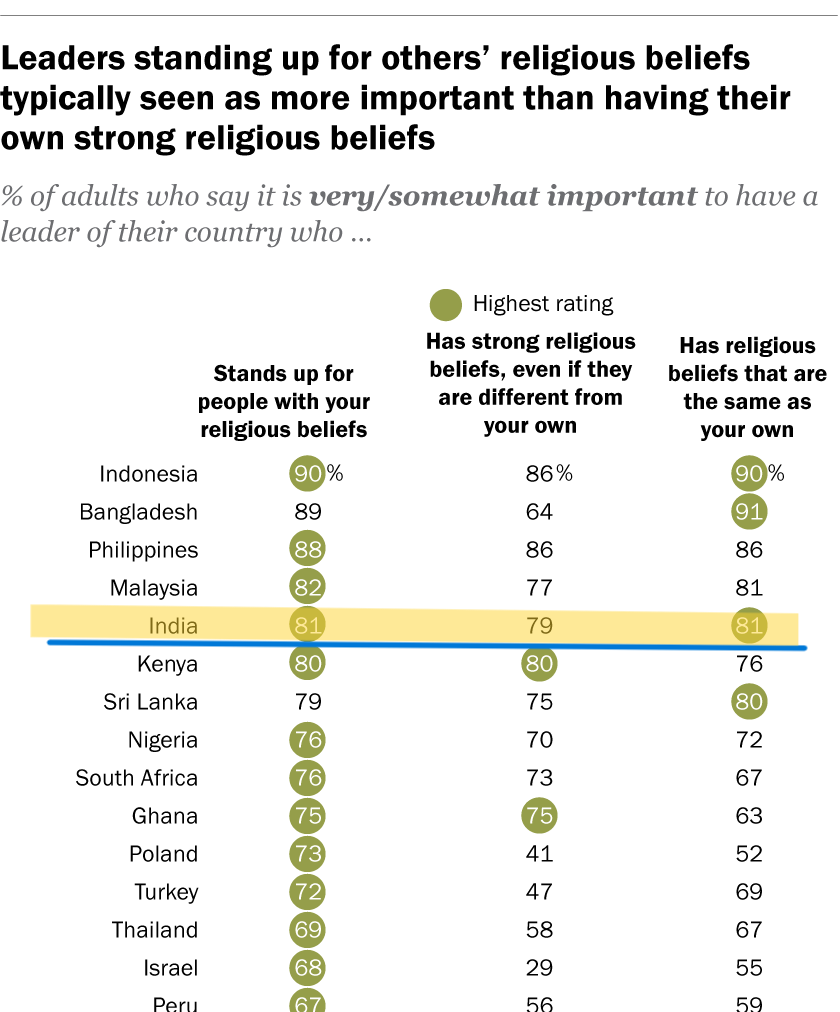
Similarly, the 2023 CSDS survey highlighted increased inclination among young Indians for government jobs over private sector. Since the scarcity of such jobs has prevailed over recent years, the clamor for reservation has grown tremendously. ACLED data shows between January 2023 and February 2024 more than 50 groups staged demonstrations in 30 of India’s 36 states and union territories demanding reservation. What’s more staggering is reservation demands are arising from groups which are identified as dominant for particular states, like Maratha community in Maharashtra.
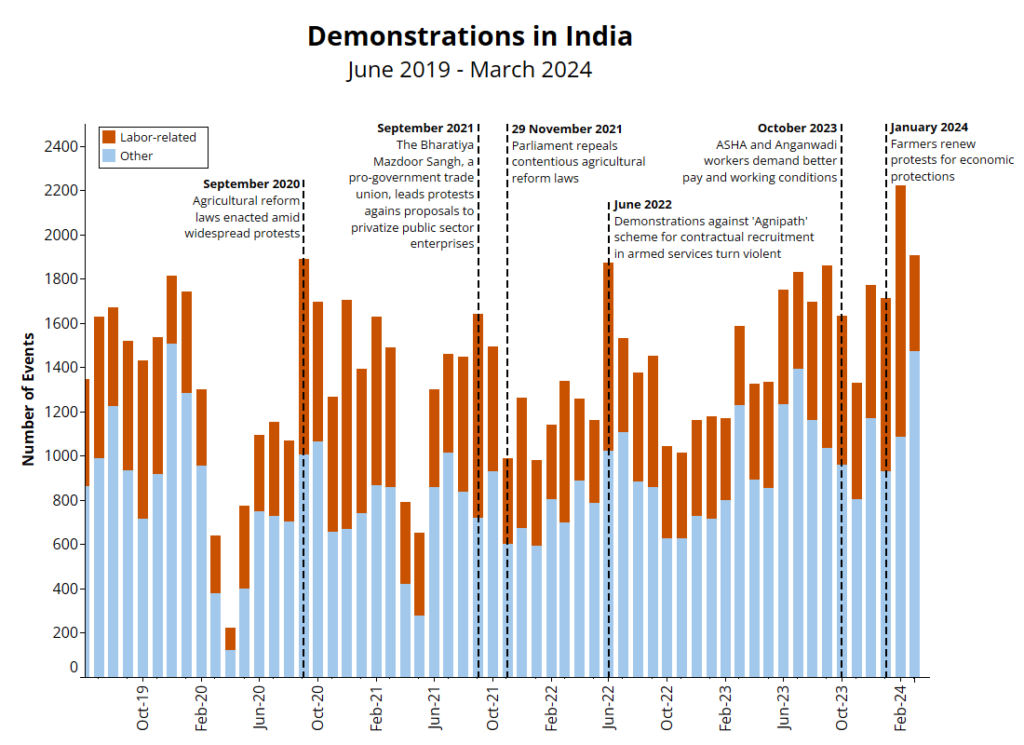
Carnegie Endowment paper on Understanding the Indian Voter writes, India stands out as an exception to other democracies where popular consensus on voting revolves around economic policies. In India, good economics need not make for good politics in India because voters prioritize factors like patronage, populism, or parochialism while selecting their representatives. Even when governments perform in ways that improve the state of their economies, voters often reject, rather than reward, those governments at the ballot box.
Quoting direct from paper by Carnegie Endowment: “Indians have traditionally cared more about their own personal well-being than the country’s broader macroeconomic health.”
Report further feedbacks on Indian voters as Egotropic than being Sociotropic meaning while making decision personal interest takes precedence over collective or societal interests.
While nobody can deny that there is a growing awareness of issues like unemployment and corruption, between public, which impact daily lives directly, the ethnic and religious identities of candidates continue to serve as vulnerable points. Politicians know that economic growth alone may not win elections, so they capitalize on these emotional triggers to sway voters & impact their opinion—playing on fears and identities in ways that economic issues alone cannot address. The chink in the armor can be easily seen to be exploited.
We, The People Are the Saviors
There will come a time when our collective conscience might urge us to abandon self-interest, but often, by then, it is too late. During India’s freedom struggle, personal ambitions faded as the national goal of liberation took precedence. It was this unity, this understanding that individual gains meant nothing in bondage, that led to great achievements. True leaders emerge with this higher consciousness, driven not by self, but by the desire to elevate society. Personal sacrifice for a greater cause has always been the common ground for those who truly change the world.
“Real leaders must be ready to sacrifice all for the freedom of their people.” — Nelson Mandela
“I have a dream that one day this nation will rise up and live out the true meaning of its creed: ‘We hold these truths to be self-evident, that all men are created equal.'” — Martin Luther King Jr.
“We but mirror the world. All the tendencies present in the outer world are to be found in the world of our body. If we could change ourselves, the tendencies in the world would also change.” — Mahatma Gandhi
Bhishma Pitamah, lying on a bed of arrows, advised Yudhishthira that great king must always prioritize the welfare of his subjects, uphold justice, and lead with righteousness but what’s more fascinating what he asks for how individuals should conduct themselves. He caution individual to understand the importance of dharma, upholding truth, self-discipline, and exercising compassion. Again. what individual in society exhibits is most likely to be seen in its ruler, even more so when the theory of governance is democracy.
We should remember once and for all, Democracy is literally rule by the people. When we act as enlightened voters, we hold ourselves and then leaders accountable. When we fall into ignorance, we easily fall prey to manipulation, first to ourselves and then to Politicians.
Democracy is indeed double-edged sword—boon in enlightenment, bane in ignorance.
Sources:
- Soutik Biswas, “How exam scandals threaten the future of India’s young people”, accessed October 19, 2024, https://www.bbc.com/news/articles/c511j589npyo ↩︎
- Pew Research Center. “Many Around the Globe Say It’s Important Their Leader Stands Up for People’s Religious Beliefs.” August 28, 2024. Accessed October 20,2024. https://www.pewresearch.org/short-reads/2024/08/28/many-around-the-globe-say-its-important-their-leader-stands-up-for-peoples-religious-beliefs/sr_24-08-28_leaders-religious-traits_1/. ↩︎
